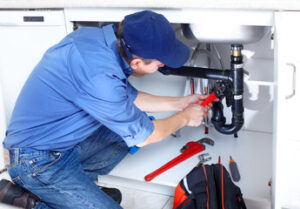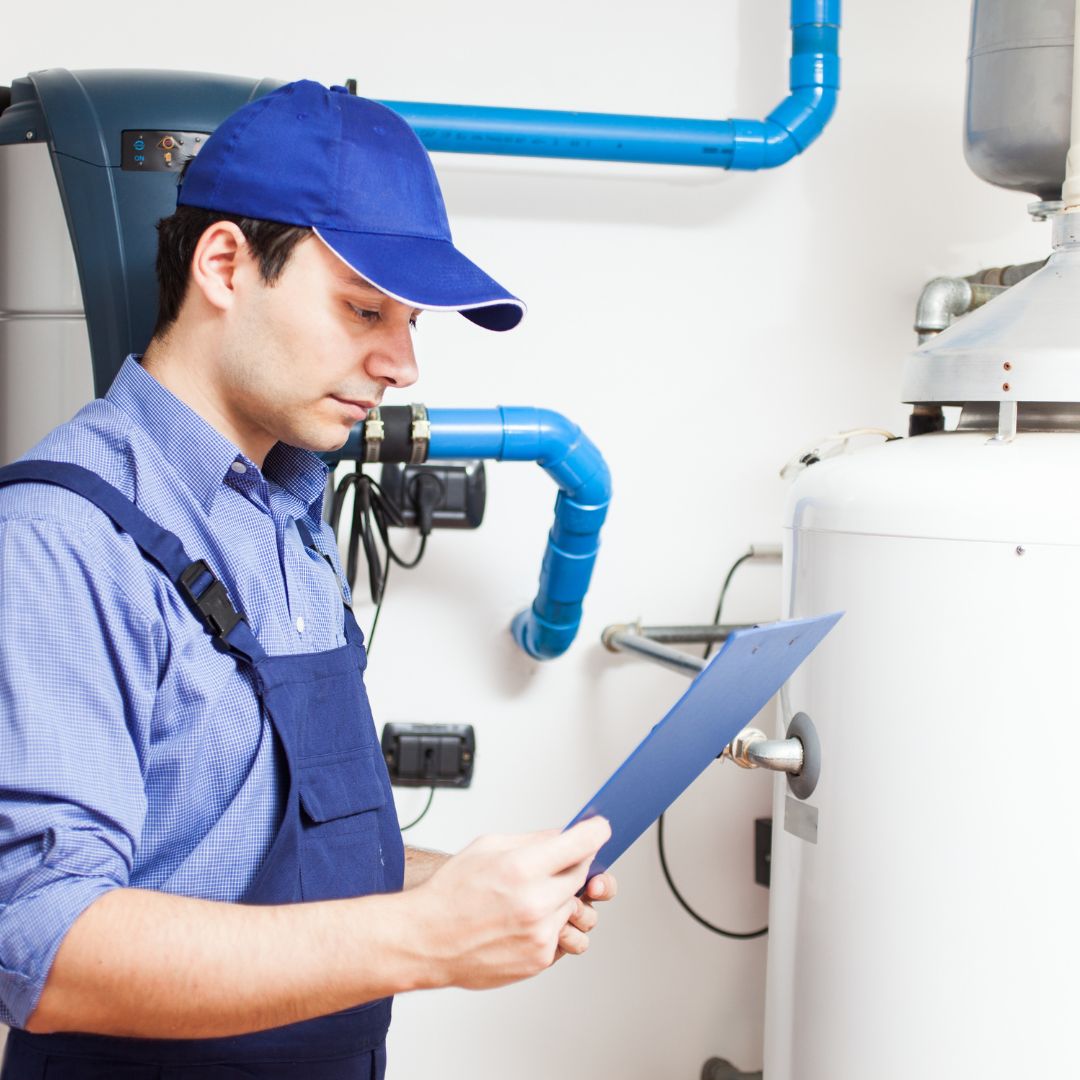Plumber Woodland Hills are skilled tradespeople who install, repair, and maintain the pipes and fixtures that carry water, heat, and waste. They work for plumbing companies and maintenance departments or as independent contractors.
They must have strong customer service skills as they often deal directly with clients when addressing concerns or making repairs. This can include explaining complicated issues clearly and giving accurate estimates for work.
If you’re looking for a rewarding career with the security of an established industry, look no further than plumbing. It’s a recession-proof trade that’s constantly in demand, and it requires no college degree to get started. In fact, many plumbers complete their education through a paid apprenticeship program which allows them to work while learning the skills of the trade and rack up less student debt.
A high school diploma is the minimum requirement for becoming a plumber, and from there you can choose to attend a trade school or community college to receive your certification. Trade schools and community colleges typically offer hands-on labs and classes that prepare you for a job as an apprentice or journeyman plumber, and they may also allow you to take business classes which are useful in starting your own plumbing company one day.
Alternatively, you can pursue a professional certification as a master plumber. A master plumber must have at least ten years of experience as an apprentice and five years of work as a journeyman to become certified, and this is also the option you’ll want to explore if you plan on opening your own plumbing company. In addition to having the right training and skills, it’s important to have certain soft skills as a plumber. For example, listening skills are essential in interpreting customer problems and troubleshooting the most effective solutions. Strong verbal communication is also required to explain complex tasks to customers.
Plumbing programs teach students about all aspects of the industry, including pipe fittings, blueprint reading, and plumbing codes. They will also learn how to read and operate a variety of tools, and they will be ready to start working as an entry-level plumber after graduation.
The job outlook for plumbers is excellent, and the salary is above the national average. There are many opportunities for advancement as a plumber, and you can even become a manager or supervisor for other workers. Some plumbers even choose to specialise in a particular area such as sanitation, air conditioning or ventilation systems. Those with advanced technical knowledge and skills may choose to become an engineer, which is also a good way to increase your salary.
Job Duties
A plumber is responsible for installation and repair of pipes, fixtures, and appliances. This may include work on heating systems, water supply lines, drainage systems, and sanitation units in residential and commercial structures. The job duties of a plumber also include inspecting plumbing systems, designing infrastructure, and ensuring compliance with regulations.
The most common responsibilities of a plumber are responding to calls, installing and repairing faucets, toilets, showers, sinks, drains, water heaters, and more. Plumbers must be able to identify the source of a problem and recommend the appropriate solution. They also need to be able to read blueprints and other technical documents. Other important responsibilities include collaborating with other contractors, providing customer service, and educating customers on preventative maintenance.
Plumbers should be familiar with all aspects of plumbing installation and repair. This includes working with copper, PVC, and black iron pipe, as well as fittings, valves, and other equipment. They must also be able to operate reamers, sewer cameras, and other equipment. Plumbers often work in confined spaces and on ladders or scaffolding. They should also be able to climb stairs and work outdoors, depending on the project.
It is important for a plumber to keep up with industry trends and practices. This can be done through self-directed reading, attending professional development courses, and participating in training sessions. They must also be able to communicate with clients and other professionals in a clear and concise manner. They must also be able to read and interpret blueprints, diagrams, and schematics.
Creating a comprehensive Plumber job description can help you attract the right candidates. Be sure to include the specific skills and qualifications you are looking for, as well as the schedule, pay range, and other details. It is also a good idea to add a list of non-financial compensation and benefits, as these can be very attractive to applicants. By being clear about the requirements of the role, you can avoid wasting time interviewing candidates who do not meet your criteria.
Work Environment
As a plumber, you’ll be working in a variety of environments from homes to commercial and industrial buildings. You’ll install plumbing systems, fixtures and appliances like sinks, toilets, dishwashers and water heaters. You’ll also inspect and test these systems to ensure they meet local, state and federal regulations. Plumbers often work with architects and construction teams to ensure plumbing plans are in line with building codes and blueprints.
Plumbing is physically demanding, and plumbers are at risk for injuries from manual handling and exposure to hazardous materials. You can also be exposed to germs when working with raw sewage or cleaning septic tanks, and these can lead to illnesses such as hepatitis and other parasitic infections. Plumbers may also be exposed to chemicals and solvents, which can irritate the eyes, skin and respiratory tract.
You may be required to work in tight spaces, and you’ll need to wear personal protective equipment (PPE) such as gloves, masks and eye goggles. This can limit your movements and make it difficult to get around. You’re also at risk of slips, trips and falls especially when working in cramped conditions, as well as the potential for tripping over tools or piping. These types of accidents are one of the top three reasons for non-fatal workplace injuries that result in days away from work.
Plumbers are also at risk for developing repetitive strain injury (RSI), which can be caused by repeated, forceful actions or poor posture. This type of injury affects the muscles in the wrists, hands and arms. You can protect yourself from RSI by wearing comfortable shoes, stretching regularly and using ergonomic tools.
Plumbing can be stressful, and you’ll likely encounter high levels of customer service demands. You may need to provide advice and recommendations on plumbing solutions, and you may also need to communicate with customers about their project and budget. In addition, you’ll need to be able to respond quickly to emergency calls and deal with the public in a professional manner. These factors can add up to a mentally taxing job, and plumbers are at a higher risk for burnout and early retirement than other trades workers.
Salary
Plumbers are skilled tradespeople who install and repair the pipes that supply water and carry waste away from homes and businesses. They also install sinks, toilets, showers, and other fixtures. They use blueprints and building codes to determine the location of plumbing fixtures and pipes, then follow the necessary steps to connect them. Plumbers typically earn higher wages than other construction workers and are in demand. Many plumbers belong to labor unions that negotiate their pay rates and benefits.
The salary of a plumber depends on their location and specialization. Some plumbers work in residential settings, while others focus on commercial or industrial projects. Regardless of their specialty, all plumbers must be comfortable working with tools and performing physical labor. They may spend the day fixing a variety of problems, from leaky pipes to clogged drains.
To increase their earnings, plumbers can seek out additional certifications or training. These courses teach them about new tools, methods, and technologies that can make them more valuable to employers. In addition, plumbers should always keep up with industry trends to ensure that they are providing the best service possible to their clients.
Depending on the state, the salary of a plumber can vary dramatically. For example, an entry-level plumber in San Francisco makes $47,800 per year, but the same job in Burlington, Vermont pays almost twice as much due to the cost of living. This is why it’s important for plumbers to understand the salaries of different states before making a career move.
Plumbers are in high demand, but the career can be physically demanding. Those interested in becoming a plumber should have physical stamina and be able to deal with the potential hazards of the job. They should also be able to handle pressure and heights. Those who want to start a plumbing career should consider earning their certifications from an accredited trade school. Penn Foster offers online courses that can help prospective plumbers get the skills they need to start their careers. Those who don’t want to go to school can find on-the-job training by shadowing experienced plumbers.

